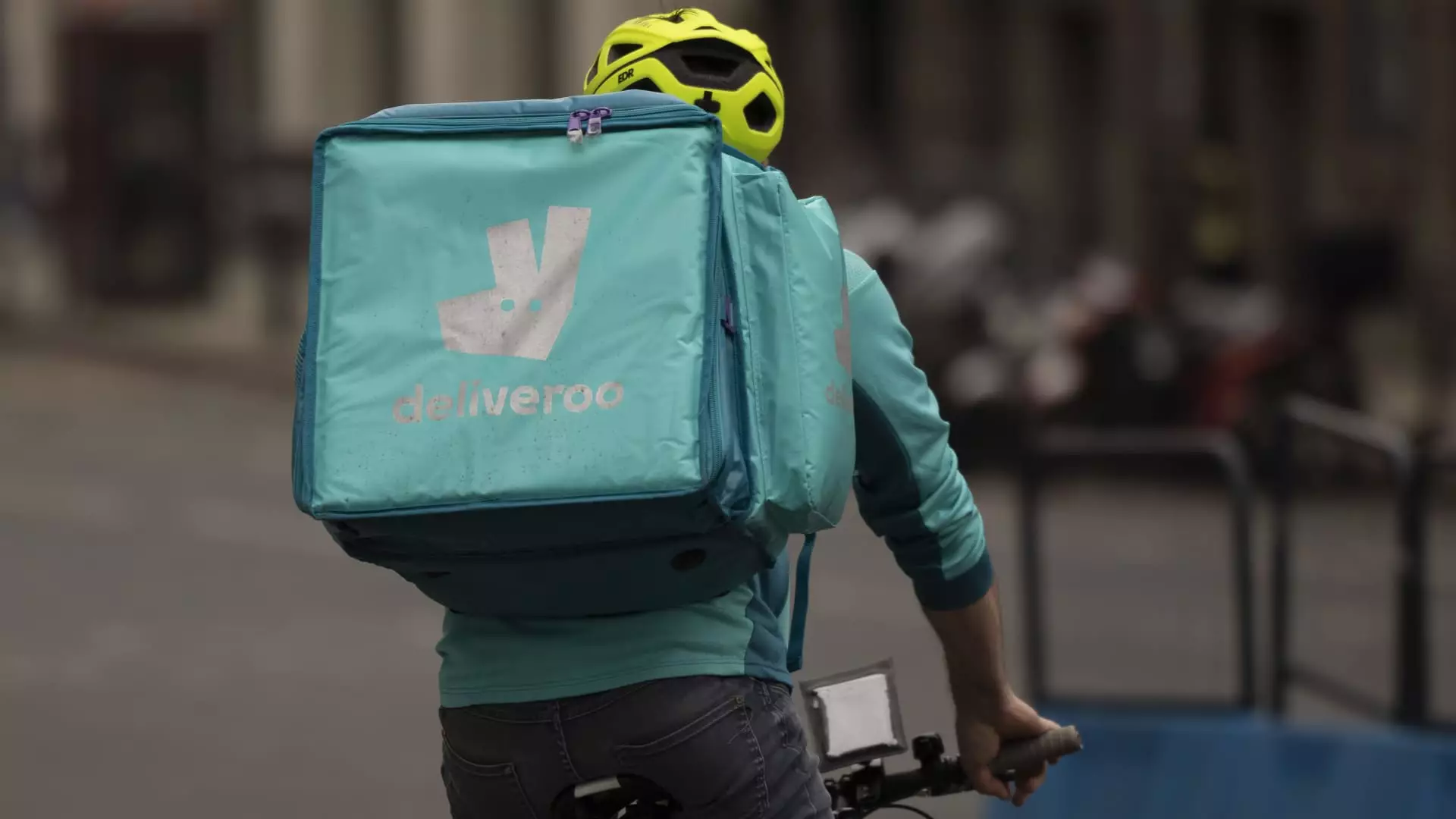In a significant move shaking up the food delivery landscape, British company Deliveroo has accepted a takeover bid from its American rival, DoorDash, valuing the company at an impressive £2.9 billion (approximately $3.9 billion). This deal, which represents a 44% premium over Deliveroo’s last closing share price prior to the offer, signals a newfound confidence in a company that has been through a tumultuous period since its public debut. As investors keep a keen eye on how this acquisition unfolds, it’s essential to analyze both companies’ trajectories and the competitive landscape that has led to this moment.
Deliveroo: A Rollercoaster Ride
Once celebrated as a promising tech star of the U.K. market, Deliveroo experienced a swift rise and fall. Its initial public offering (IPO) in 2021 was a fiasco, resulting in a staggering 30% plunge on its first day of trading, marking one of the worst openings on the London Stock Exchange. The euphoria of the pandemic that temporarily bolstered food delivery services quickly turned into skepticism post-COVID, leading to questions about the long-term viability of Deliveroo’s business model. Suddenly, the tech darling was facing significant hurdles, including fierce competition and mounting legal challenges related to gig economy regulations. Shares languished, dipping more than 50% from its IPO price of £3.90, casting doubt on its future.
DoorDash’s Ambitious Expansion Strategy
For DoorDash, acquiring Deliveroo is more than just a strategic investment; it is a bold statement about their aspirations to dominate the global food delivery market. By extending its services to a combined population of over 1 billion across more than 40 countries, DoorDash aims to significantly enhance its operational footprint. The CEO, Tony Xu, expresses enthusiasm about this merger, emphasizing the potential to provide essential tools and technology to local businesses. However, this eagerness must be balanced with the realities of integrating two distinct corporate cultures and operational practices.
The acquisition aligns with DoorDash’s ongoing strategy to solidify its presence beyond U.S. borders, which culminated in its earlier acquisition of Finnish food delivery service Wolt for around €7 billion. This pattern of aggressive expansion through acquisitions speaks volumes about DoorDash’s ambition to not only capture market share but also to shape the technological landscape of the food delivery sector.
Market Consolidation: A Trend or Temporary Phase?
The unfolding narrative of this acquisition cannot be discussed without addressing the broader trend of consolidation within the food delivery industry. Companies are scrambling to consolidate resources and capabilities amid a saturated market characterized by intense competition. Earlier this year, Deliveroo had already divested parts of its Hong Kong operations to Delivery Hero, while Just Eat announced a similar acquisition by investment group Prosus. This wave of consolidation could fuel a re-evaluation of strategies as firms vie for stability and growth in an era of economic uncertainty.
Moreover, the food delivery business model has come under scrutiny, with questions surrounding profitability lingering in the air. As more players enter the fray, consumers benefit from better services and competitive pricing, but the sustainability of such growth remains debatable. Both DoorDash and Deliveroo must navigate an often turbulent environment where customer loyalty is fleeting and success can quickly turn to decline if market dynamics shift.
Looking Ahead: The Future of Food Delivery
As the food delivery sector grapples with these ongoing changes, the success of DoorDash’s acquisition of Deliveroo will depend as much on strategic alignment and operational efficiency as on market conditions. The merger suggests that we are entering a brave new world in food logistics, driven by innovation and the need for companies to adapt quickly to consumer demands and preferences.
In this landscape, DoorDash and Deliveroo have the opportunity not just to survive but to thrive, influencing how people experience food delivery on both local and global scales. The boldness of this acquisition signifies that the stakes are high, and only time will tell how well these companies adapt to the challenges that lie ahead in an increasingly competitive market.

